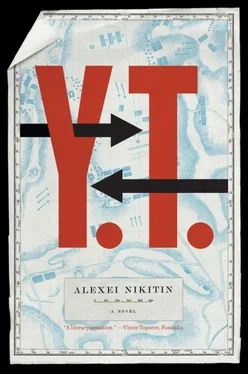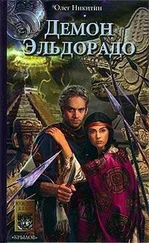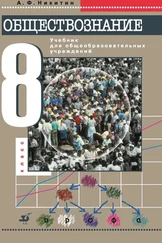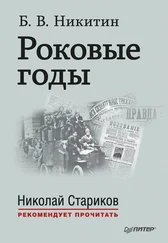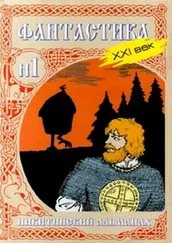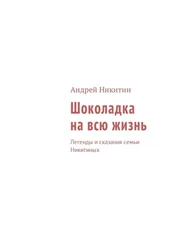After the army Kurochkin enrolled in law school and graduated. I, like an idiot, tried to re-enter the waters of our old university’s radiophysics department. The waters rejected me. As for Kanyuka, he didn’t even try. He earned a little money, bought a video recorder, opened a video shop in his apartment and used his brains to go into business.
In the late 1980s, Kurochkin and I were still getting together regularly, but after he finished his studies he suddenly began appearing on television in the company of some rather well-known figures, and soon he himself became someone of interest to journalists. In other words, he had begun a political career. And he made it.
This was the first time I had seen Kurochkin at work—that our lunch was work was immediately apparent. Although, of course, on a ministry committee he would behave differently—that’s because the FORMAT was different.
Once we’d settled around the table Kurochkin gave a succinct and matter-of-fact account of the situation. He said, ‘We’ve been struck,’ followed by ‘We’re being set up,’ and ‘I’m already being asked awkward questions,’ then ‘Solve the problem and get rid of the question.’
He concluded with ‘We have to find him first. Is that clear?’
Sinevusov was chewing zestfully. He didn’t raise his head or look away from his plate. Everything was clear.
‘I can’t make head nor tail of it.’ I shrugged and looked at Kurochkin. ‘What kind of salad is this? It has such a surprising taste, but it’s delicate, too. It’s like there’s citrus and fish and some Ukrainian fruit—apples, maybe. I can’t figure it out. Do you know?’
Sinevusov grunted softly.
‘Davidov!’ Kurochkin frowned. ‘Stick to business, please.’
‘Of course.’ I pushed my plate away. ‘I’ll stick to business. Number one. Yurka, what makes you think you can tell me what to do? I’m not one of your wretched ministers, and I’m not about to bow down and salute you—not for any reason.’
‘Okay, okay,’ said Kurochkin with a sweep of his arm. ‘If that’s all—’
I cut him short. ‘Don’t interrupt me.’ The hatred in my lightning outburst scorched my consciousness and whipped up the shade of Istemi from the depths. I was a little bewildered. I hadn’t expected anything of the kind from myself. After all, I counted Kurochkin among my friends, and he had come to my assistance a few times in a big way. But that didn’t give him the right to decide what I should or shouldn’t do. ‘I’m not done yet. Number two. I don’t intend to go on a manhunt, and I shall not do so. There’s nothing for me to do here. No money has been taken from me. Kickbacks, embezzlement, fraud—that’s your affair. Your affair and your millions. You began without me, and you can carry on without me. If you want to fish your chestnuts out of the fire, find somebody else. I pass. And as far as the game is concerned, we finished in 1984. That’s enough for me. I’m not going to start playing again. Thank you for dinner. We’ve finished.’
‘You’re missing the point, Davidov,’ said Kurochkin. In his voice there was nothing but endless patience. ‘Our people think—for the moment anyway—that it’s the Americans. And the Americans are like the elements.’ He recited a line of Pushkin. ‘ “The storm covers the sky with gloom”—remember that? It’s about them, the breadwinners. Either they’re howling like animals or whining like children, but it’s impossible to understand why or, more importantly, to predict what will happen tomorrow. But as soon as they do find out, and we have to be ready for this, then it won’t be because of the Americans anymore but because of us. I don’t want to scare you, but anyone who’s had anything to do with the game can expect big trouble.’
‘They’ll tear you to shreds,’ said Sinevusov, momentarily looking away from his plate before going straight back to his food.
‘Did you hear that?’ Kurochkin pointed at Sinevusov. ‘They’ll tear us to shreds—me first, then you—if we don’t track him down.’
‘If we don’t track who down, Kurochkin?’
‘Sashka Korostishevski. It’s coming from him. Even if it has nothing to do with him, we have to track down whoever is responsible for this letter. It’s our turn now, can’t you see?’
‘It’s your turn now, Kurochkin. Yours. Not ours. Don’t drag me into your affairs.’
‘You’re wrong, Davidov.’
‘Maybe. I make lots of mistakes. Which is precisely why I don’t want to add your mistakes or anyone else’s to my own. I make enough all by myself. Whether or not I can help you is something else…’
‘That’s what we’re talking about.’
‘Helping someone isn’t the same as carrying out your or someone else’s orders. I’ll do only what I myself consider necessary.’
‘But coordinate with me.’
‘Agreed. But if I don’t want to do something I won’t do it.’
‘Agreed.’
Kurochkin gave me Sinevusov as my assistant. Or perhaps he just wanted him to keep an eye on me …
What kind of bloody life is that when you can’t even trust your own friends?
I’d been glued to my computer screen since morning. It was displaying a complicated table with the results of cola sales in the four northern provinces of Ukraine. By now I’d memorized the contents of the table and no longer even noticed it.
I was trying to piece together a picture of some sort using the sorry fragments Kurochkin had scattered before me, and I could see nothing would come of it. The fragments were too few—I had no idea where they belonged. And it wasn’t just that we—or I (I wasn’t sure Kurochkin had told me everything he knew)—didn’t have enough information, but the story was also short on characters. The light in the auditorium was switched off, the show had begun and was well under way, but they had forgotten to turn on the spotlights. Or didn’t want to. Perhaps that was part of the concept. The director, a bloody avant-gardist, had staged a show without lights. The action develops, it twists and turns, and from the set you hear, ‘She loves him but not like a husband. It’s a childhood friendship.’ A meaningful-poisonous-skeptical response follows. ‘We know this friendship. If only there wasn’t… an obstacle.’ Pause. The creak of a door, a bang, and the voice again, ‘What are you doing?’ We’re meant to guess that the chambermaid has entered the room. We’re meant to guess what the chambermaid looks like and who Anna Pavlovna is and who’s playing Sasha. You can’t figure out a bloody thing from the voice. When will that twat of a director order the lights to be switched on? We can’t see anything. Or maybe it’s nothing to do with the director at all. Maybe the country is trying to conserve electricity—it’s a periodic power outage, and they’re burning candles in two hospitals, scores of kindergartens, three factories and a strategic missile unit …
By lunchtime my head hurt. I was still sitting in front of the monitor, and for a moment I fancied I saw Sashka Korostishevski coming up behind me. He was standing behind me and slyly, silently grinning. I whipped around. Malkin was standing there selecting the right smile.
‘Hi, Alex!’ A series of deformed smiles flashed underneath his nose. He settled for the Broad Smile. The Broad Smile of the Friendly Boss.
‘Hi, Steve,’ I answered with a Ready Smile.
‘You sure are working a lot.’ He thrust out his lower lip and nodded his head.
I wasn’t certain what he meant. That I’d been staring at the same screen all day long? Or that I was looking like crap? I didn’t know. I decided not to say anything.
‘It’s nearly lunchtime. Why don’t we get a bite to eat?’
Right. Now he had me. This was a first.
Читать дальше
